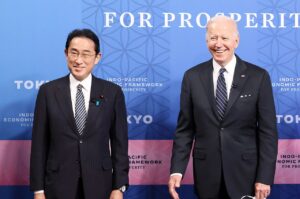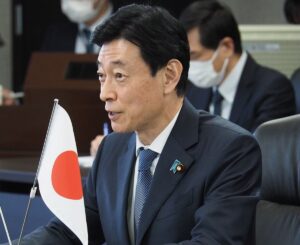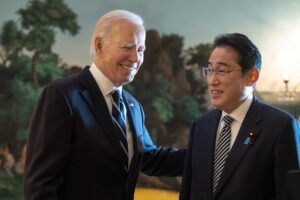On September 15, the United States, United Kingdom, and Australia jointly announced the Australia-U.K.-U.S. (AUKUS) trilateral security partnership with a focus on Indo-Pacific region. Aimed at fostering “deeper integration of security and defense-related science, technology, industrial bases, and supply chains,” AUKUS will begin their cooperation in earnest by launching the development of Australia’s nuclear-powered submarine as its inaugural cooperative acquisition program over the next 18 months.
The announcement not only surprised many but also resulted in an deep diplomatic tensions between the U.S. and France as well as Australia and France – so much so that France decided to recall its ambassadors in Washington, D.C. and Canberra back to Paris for consultations. urthermore, despite the in-person Quad summit in Washington, D.C. on September 24, where U.S. President Joe Biden met with his Australia, Indian, and Japanese counterparts, the White House unambiguously ruled out the possibility of either India or Japan joining AUKUS, raising a question of how the AUKUS partnership can be mutually reinforcing with the other minilateral relations — the Quad as well as trilateral groupings like Australia-Japan-U.S., India-Japan-U.S., and Japan-South Korea-U.S., to name a few — that have been blossoming in the Indo-Pacific region between the U.S. and its allies and partners.
If the leaders in Tokyo are surprised by Washington’s apparent unwillingness to expand AUKUS to include Japan, they shouldn’t be. An AUKUS-like partnership that cuts across various industrial sectors relevant for national security is only possible when the countries that are involved already have a history of deep security cooperation, including intelligence sharing, and have mutual confidence in safeguarding the sensitive information that will be exchanged among them as part of the process of developing cooperative programs. Given that the U.S., U.K., and Australia enjoy a long-standing security relationship not only as allies but also as “Five Eyes” partners, the level of confidence that is required for a cooperative arrangement at this depth already exists among the three.
Read the full article in The Diplomat.



